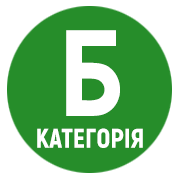STRATEGIC ROLE OF INTELLECTUAL CAPITAL IN STRENGTHENING INVESTMENT SUPPORT FOR INNOVATIVE DEVELOPMENT OF ENTERPRISES
Abstract
In today’s dynamic business environment, characterized by digital transformation, intensifying global competition, and rapid innovation, the traditional approaches to enterprise resource management are undergoing fundamental change. Increasing attention is being paid to intangible assets, particularly intellectual capital, as a strategically important resource that directly influences long-term innovative development. The purpose of this article is to conduct a comprehensive study of the strategic significance of the structural components of intellectual capital for enterprise innovation. The paper analyzes modern theoretical and methodological approaches to defining and classifying intellectual capital, and substantiates the relevance of distinguishing three key components — human, structural, and relational capital — each of which performs a specific function in the processes of knowledge creation, accumulation, and transformation. Based on a synthesis of scientific literature by both Ukrainian and international researchers, as well as an examination of practical cases from various industries, it is established that the synergy and balance between the structural components of intellectual capital are crucial for stimulating enterprise innovation. Special attention is given to identifying the internal and external factors that influence the effectiveness of intellectual capital utilization, such as organizational culture, internal communications, change readiness, technological infrastructure, and leadership support. The study proposes a conceptual model for the strategic management of intellectual capital in the context of innovation-driven development, which can serve as a foundation for managerial decision-making and the formulation of enterprise growth strategies. It is concluded that targeted and well-coordinated management of intellectual capital components not only enhances a company’s innovative capacity but also contributes to the formation of sustainable competitive advantages in the long term. The practical value of the findings lies in their applicability to strategic planning, knowledge management policy development, and the design of HR and communication strategies within enterprises.
References
Dashevska A. A., Skorobagata L. V. (2017). Human Capital in the Accounting and Taxation System. Problems of Entrepreneurship Development in Ukraine in the Context of Revitalization of European Integration Processes. P. 94–98.
Melnyk L. H., Illiashenko S. M., Kasianenko V. A. (2004) Economics of information and information systems of the enterprise: tutorial. Sumy: IED “University Book”, 400 p.
Structure of the intellectual capital of the enterprise. Available at: https://idruchniki.com/78162/pravo/struktura_intelektualnogo_kapitalu_pidpriyemstva
Intellectual capital: the essence and methods of evaluation. Available at: http://www.economy.nayka.com.ua/?op=1&z=3288
Assessment of the intellectual capital of the enterprise. Available at: https://idruchniki.com/78165/pravo/otsinka_intelektualnogo_kapitalu_pidpriyemstva
Intellectual capital. Available at: https://www.pharmencyclopedia.com.ua/article/6982/intelektualnij-kapital
Methods of estimating the intellectual capital of a tourist enterprise. Available at: http://tourlib.net/statti_ukr/rotan.htm
Features of the knowledge economy. Available at: https://studopedia.su/17_4989_osoblivosti-ekonomiki-znan.html
Innovative activity of the enterprise. Available at: https://www.libr.dp.ua/sitelibr/?idm=1&idp=11&ida=1081
Дашевська А. А., Скоробагата Л. В. Людський капітал у системі обліку та оподаткування. Проблеми розвитку підприємництва в Україні в контексті активізації процесів євроінтеграції. 2017. С. 94–98.
Економіка інформації та інформаційні системи підприємства: навч. посіб. / Л. Г. Мельник, С. М. Ілляшенко, В. А. Касьяненко. Суми : Університетська книга, 2004. 400 с.
Структура інтелектуального капіталу підприємства. URL: https://pidruchniki.com/78162/pravo/struktura_intelektualnogo_kapitalu_pidpriyemstva
Інтелектуальний капітал: сутність та методи оцінки. URL: http://www.economy.nayka.com.ua/?op=1&z=3288
Оцінка інтелектуального капіталу підприємства. URL: https://pidruchniki.com/78165/pravo/otsinka_intelektualnogo_kapitalu_pidpriyemstv
Інтелектуальний капітал. URL: https://www.pharmencyclopedia.com.ua/article/6982/intelektualnij-kapital
Методи оцінки інтелектуального капіталу туристичного підприємства. URL: http://tourlib.net/statti_ukr/rotan.htm
Особливості економіки знань. URL: https://studopedia.su/17_4989_osoblivosti-ekonomiki-znan.html
Інноваційна активність підприємства. URL: https://www.libr.dp.ua/site-libr/?idm=1&idp=11&ida=1081







